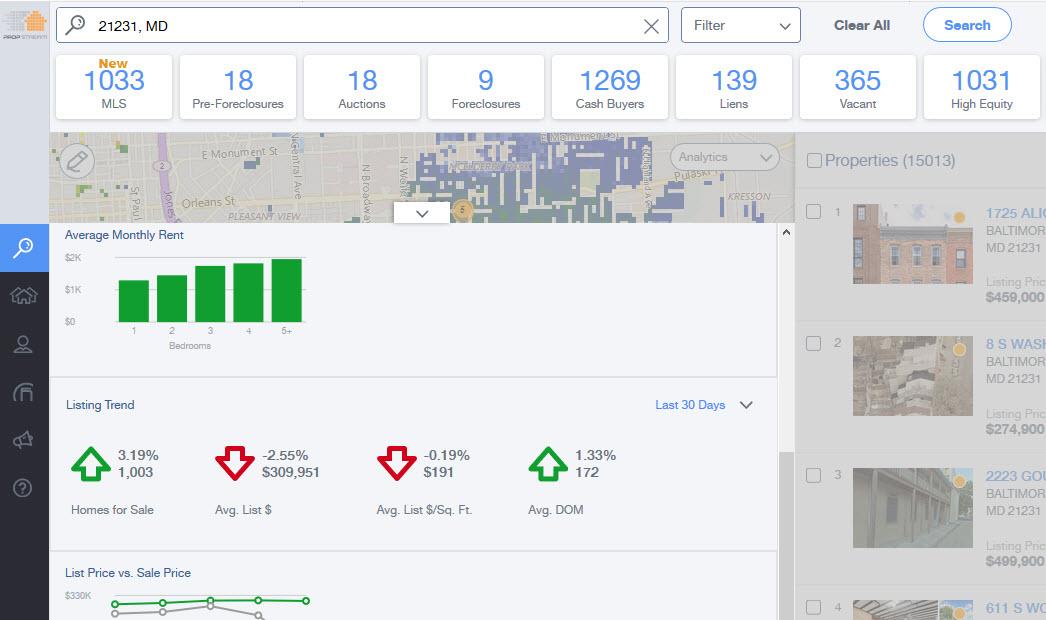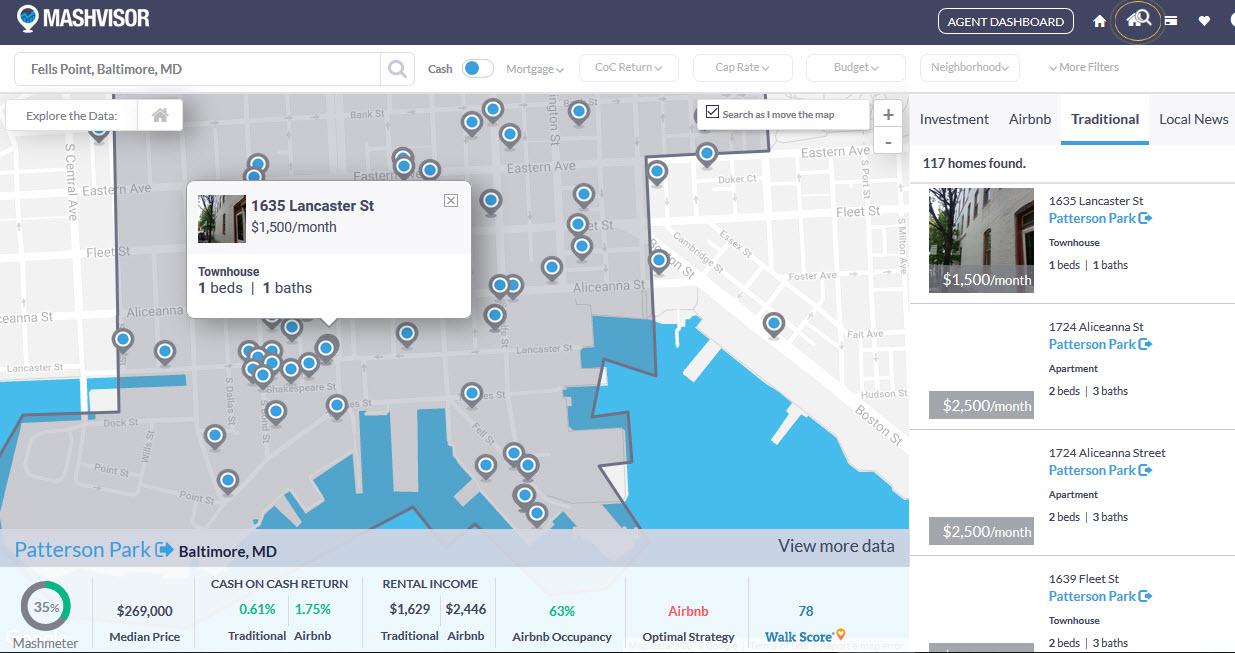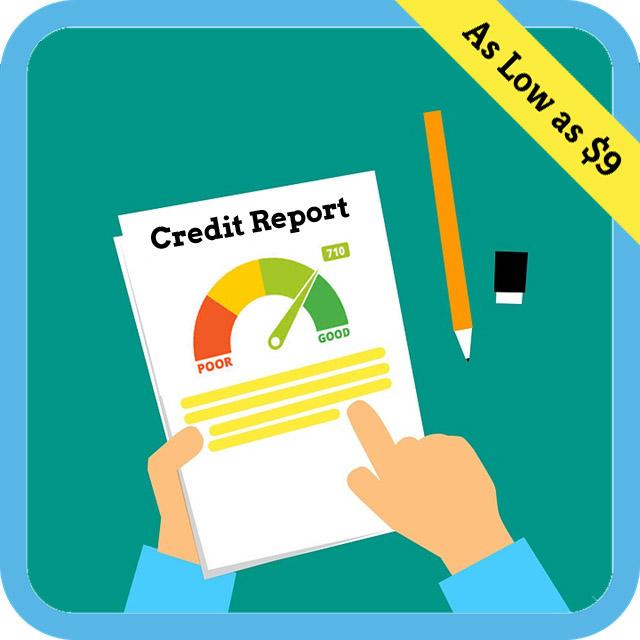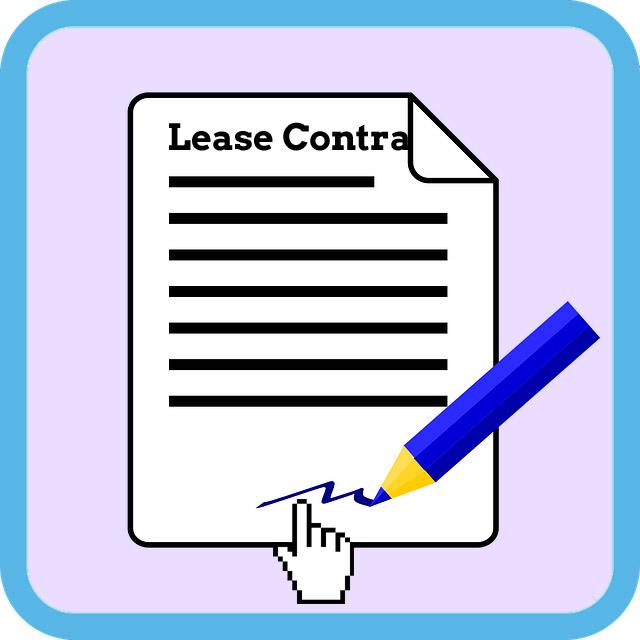
Want a better return on your rental investments?
Landlords need to understand how to tactfully and effectively raise rents, without losing their tenants. Turnovers can be costlier than a Kardashian’s wardrobe, so if you want to maximize ROI you need to minimize turnovers while keeping rents on the rise.
Here’s what landlords need to know about rent increase letters, legal limitations, and how to raise the rent without losing tenants.
First Step: Know the Market Rent
It doesn’t matter if you do everything else on this list right. If you try to raise the rent above local market rental rates, your tenants will balk.
And then they won’t renew your lease agreement, leaving you with a vacant rental unit and a costly turnover. Which will leave your net profits for the year lower, not higher, and defeat the purpose of raising the rent.
So, do your homework before raising the rent. Start with free resources like Zillow, to check nearby rental comps.
Another resource you can access is PropStream. While Propstream is primarily designed as a real estate investing tool to find under-valued properties, it comes with powerful market analytics.

One final tool worth mentioning is Mashvisor. Among other functions, Mashvisor helps you analyze the local rental market, and includes comparisons for Airbnb rentals versus long-term rental returns.

You can also check rental listings on oldie-but-goodie Craigslist, which remains popular and well-used by both landlords and tenants to this day.
How Much to Raise the Rent?
Feel confident in a number for your rental unit’s market rent?
Before you go raising the rent to that exact number, pause to consider how much of a rent increase you’re talking about. Calculate the percentage rent increase, over your current rent.
A good rule of thumb: don’t raise the rent by more than 5% per year. Any more, and the sharp rent increase often jolts the tenant into moving – even if you’re raising the rent no higher than nearby market rates.
Say you’re currently renting the property for $1,000, and after analyzing local comps, you decide the market rent is $1,100. Instead of raising the rent by $100 all at once, consider raising it by $50 this year, and another $50 next year.
And never, ever raise the rent by more than 10%, if you want to keep your tenants. No matter how much your tenants like the rental unit and get along with you, they will balk if you raise the rent by more than 10%.
Most people’s budgets can’t handle their rent going up by hundreds of dollars a month. If your rent is dramatically below market value, raise it gradually, in manageable increments over the course of several years.
You should send a raise-the-rent letter every year, so don’t put yourself and your renters in a situation where the rent is so far below market pricing that you consider a huge hike. But we’re getting ahead of ourselves, more on that shortly.
Serve the Rent Increase Letter Before the Deadline
Many lease agreements include a specified notice period, for notifying the other party about changes in the lease renewal. As a landlord, you must send a written rent increase letter before that period.
But the lease agreement isn’t the only factor. Most states impose minimum notice requirements as well.
Common notice periods are 30 or 60 days before the current lease agreement ends, although they can be as long as 90 or even 120 days. If the lease ends on April 30, and the lease and local laws require a 30-day notice period for any changes to the leasing agreement, the landlord must serve the rent increase notice on the tenant by March 31 at the latest.
With that said, landlords should serve the notice with time to spare. The tenants needs time to decide, and time to respond to your rent increase notice. If they opt to non-renew, you’ll need time to advertise the rental unit and screen tenants, ideally before the outgoing tenant leaves, to minimize your vacancy.
It’s worth mentioning that the same notice period applies to non-renewal of the lease, if you want your tenant to move out at the end of the current lease term.
Check your state landlord-tenant laws before setting a notice period for raising the rent, and follow it to the letter when you serve a raise-the-rent notice!
(article continues below)
Free Tools to Automate Your Rentals:
How to Serve a Raise-the-Rent Letter
Each state has different legal options for serving rent increase letters. The most common service options include:
- Certified mail
- Hand delivery
- Posting the raise-the-rent letter on the front door
- Regular mail
When in doubt, serve the rental increase letter by certified mail, because it leaves you with a receipt to prove delivery.
Remember to mail it several days in advance – snail mail takes time!
Rent Increase Letter Sample
Where can landlords find a rent increase letter sample?
Glad you asked. We offer a free raise-the-rent letter through our landlord app, accessible by all account levels (including the Free account).
Here’s a video showing how you can create and print a rent increase letter in under 60 seconds using our landlord app:
You can create a free account here and generate your rent increase letter less than a minute later.
Watch Out for Rent Control & Section 8
In many markets, rent control is a reality for landlords.
The market rent doesn’t matter in those cases; you can’t charge market rents. All you can charge is what’s allowed by local rent control laws.
If your rental is in a rent-controlled area, make sure you check the local laws for maximum rent increase rates, and don’t surpass them. Exceed the maximum rent increase rate and you risk fines, plus angry tenants.
Keep in mind that Section 8 sometimes restricts rent increases as well. If you rent to Section 8 tenants, check with your local Section 8 office about annual limits before you raise the rent.
5 Tricks to Raise the Rent Without Losing Any Tenants
Want higher tenant retention rates?
You should. The average tenant turnover costs thousands of dollars in vacancies, repairs, maintenance such as repainting and new carpets, and new tenant leasing costs (whether to a property manager or in your own lost hours of labor).
But no one wants to hear that their rent is increasing. So how can you deliver this bad news without alienating your best tenants?
1. Raise the Rent Every Year, Even If Only Slightly
Every year, like clockwork, you should send a raise-the-rent notice. Even if it’s only by $10-20.
Why? Isn’t that just spiteful with no real income bump?
No, it actually has nothing to do with the money. The point is to set expectations – you are reinforcing the notion that the rent goes up every year, no exceptions. Don’t worry, none of your renters will go through the hassle of moving over $15/month.
Maybe neighborhood demand is stable this year, so you’re only raising the rent to keep pace with inflation. Or maybe demand in the area has skyrocketed, and you need to boost the rent significantly to keep pace with the market. Regardless, you’re sending a message: grass is green, gravity falls downward, and rent goes up every year.
(article continues below)
2. Pave the Way with Good Relations.
Long before you ever need to raise the rent, you’ll be signing the initial lease agreement with the tenants and probably contacting them by phone a few times over the course of the first year. You’ll already know their children’s names from the rental application, and you’ve probably met their children at least once.
A simple way to warm parents to you is to ask about their children by name. You don’t need to actually remember their names; just pull out the rental application before you call them and ask how Little Bobby is doing. If they moved from another school district, you can always ask how the kids are doing in the new school.
If the tenants don’t have kids, you can always ask about their job, or a quirky hobby of theirs.
Keep a few notes each time you talk to your tenants, so you can reference them the next time you call them. It will take you thirty seconds to keep and reference these notes, but even this basic level of human contact will warm your relationship from “This landlord just wants a rent check” to “She’s a nice woman.”
3. Deliver the News by Phone (But Still Send an Increase in Rent Notice)
By law, you need to send written increase of rent letter, usually 30-60 days in advance (as outlined above). In some states, it’s as high as 90 or even 120 days’ written notice.
By the laws of common courtesy, you should deliver bad news gently, by phone. No one likes to open a piece of mail that says “Surprise! You owe me an extra $100/month starting next month.”
Be polite, firm, professional, and add the slightest hint of remorse (don’t overdo this last). Explain that you know it’s bad news, but rent for the new lease period will be higher than the last. If they ask why, simply tell them the rent rises every year alongside neighborhood rents and inflation.
Tell them that you would like to keep them as tenants, and that you hope they continue to rent with you. You’re now positioned to offer them an alternative.
 4. Offer a Reduced Raise in Rent If They Sign a Long-Term Lease Renewal
4. Offer a Reduced Raise in Rent If They Sign a Long-Term Lease Renewal
“Pay more” or “leave” don’t have to be the only two options. What if you could offer a third option that allays their worries and keeps your rental unit occupied for years to come?
One option you can give them is to sign a multi-year lease agreement, and have the rent only rise by $X instead of $Y.
Or you don’t have to offer any discount on the rent hike this year, but you can offer to let them avoid next year’s rent hike by locking in this rent for two years (or even three!).
Long-term tenants are where landlords make high returns. Turnovers are expensive, between lost rent, new paint, new carpets, advertising, screening tenants, and possibly paying a leasing agent or property manager.
5. Ask Tenants About Desired Upgrades, and Consider Them
Talking to tenants about upgrades is a little tricky, because you don’t want the tenant to tie the idea of upgrades to the idea of rent hikes. Over the course of the year, ask the tenant what property upgrades would make the most difference to them, if they could wave a magic wand. If you manage a large building, consider a formal survey; if it’s just a few tenants, ask around verbally.
Consider which desired upgrades would have the biggest impact on your long-term asking rents. If you could spend $1,500 and be able to charge another $75 in rent, then in under two years that upgrade will have paid for itself. Property upgrades also incentivize tenants to renew their lease and stay long-term.
If possible, make the upgrades after raising the rent, instead of just before. You can offer it as an inducement to renew long-term: “By the way, I took to heart your suggestion of installing new countertops. I’ve put down a deposit and the workers will be coming next week.”
It’s a delicate dance, raising the rent. It takes tact, professionalism, friendliness and firmness, but if handled right, your tenants will all renew their lease agreements. Higher rents and longer-term lease contracts? A recipe for higher ROI.♦
Have any tips for raising the rent? Any bad experiences? Tenants ever chase you out with a pitchfork? We love stories… share in the Comments section below!



























Establishing a relationship is key. I go out of my way to make sure my tenants trust and like me, and it makes these conversations much, much easier.
The sum of your results in business is the sum of your relationships. Just as true in the rental business as in any other. Good relationships = good results!
I love the emphasis on longer-term tenancies. Turnovers just cost me too much money, between clean out, new carpet, new paint, paying a leasing agent… too much. I’m going to try offering longer lease agreements as a way to stem off rent hikes, good tip
Thanks Sandra! Stay in touch with us about your results, we love hearing from landlords and property managers about what’s working (and what they’re struggling with).
I just bumped into your site and love what I just read on raising rent topic! Yes, building good relationship is a great tip and long lasting great tenants. They don’t come that easy!
So true! Stable long-term tenants are pure gold. Not always easy to identify up front, but when you get them, keep them!
Yes, good article that our former landlord should have read. They raised our rent $400 a month with a notice. We looked for a house the next day. We had lived in our apartment for over eight years.
I hear you Mickey! That kind of budget shock is exactly why landlords should raise the rent incrementally every year, rather than let it fall behind then hit their tenants with an infeasible rent hike all at once.
I actually know one case when they raised about 50 eur per month. The rent became maybe about 450 eur per month. It was like a shock, but the tenant said he checked prices in the neighboarhood and had no choice, he could not find anything better and still lives there.
I was wondering how to write rental increase until I saw that your “landlord app” has one included. Definitely something I need to get on top of.
Yeah definitely take advantage of our free tenant notices on our landlord software Marcus!
What if you raise the rent by $400 at once and that still puts your rental $300 lower than similar homes? I clearly failed to gradually raise the rent in the 7 years!
Once you fall that far behind market rents, it’s really hard to catch up with your current tenant without shocking their budget. Raise the rent as much as you like, but beware you may lose your current tenant. In the future, make sure you raise the rent every single year to keep pace with local market rents, so you don’t find yourself in this situation again.
Tenants react different to rent hike. It’s easier to filter the good ones from the bad ones. I’m okay with negotiations but violent reactions is a no, no!
I hear you Amanda!
This helps a lot. Thank you for the share!
Glad it was helpful Jordine!